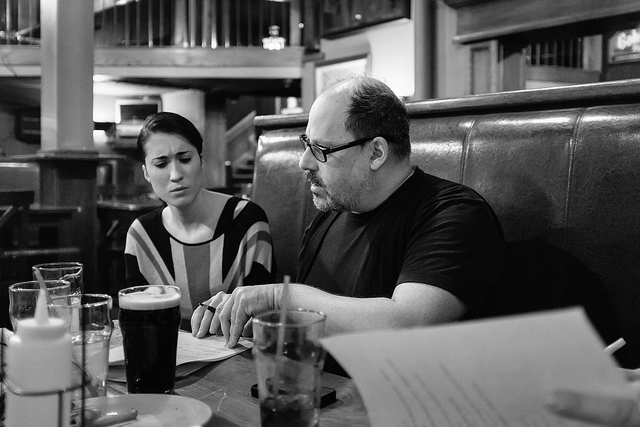What’s the play?
There be two.
Numero uno – wait. Wait till you’ve put the finishing touches on your portfolio, spit-polished pitches to crossfire, getting caught up in the BING BANG BOOM, trying to send tingles a-shuddering down spines. Wait till you can show the Masters of the Universe you’re serious about the craft, not no East Coast blow-in blow hard moonlighting through the Denny’s managerial fast track as of two weeks ago, before scribbling THE END on a senior year creative writing thesis, convinced you’re holding Wonka’s Golden Ticket.
If you’re no blow-in, if you made the move to stand toe-to-toe with everyone else in this endeavor, you’re treated with an iota more seriousness. Except seven minutes into the hustle, and the temptation to wait will strike you harder than a Mike Tyson’s Punch-Out! punch-out. You got the first person POV of the cliché: who you know matters more than how good you are.
Because everyone’s saying – no one’s buying.
Because everyone’s saying – there are no jobs.
Because – no baby writer can get a meeting or make a wave – not without the gravitational pull of a star from afar: the phone call from an uncle or cousin, the referral of a family friend.
That first person POV is filled with slush, garbage and shod from coast to coast, peripheral to peripheral. Without the referral, don’t matter how brilliant the concept or how wonderfully tight the story, it’s just more sludge clogging up the system. So you wait. Till you’ve built your own following, till your reputation precedes yourself, till you’ve paid your dues and the people who matter know you’re the Real Deal.
Plenty of reasons to wait. All of them good.
Opportunity costs are expensive. Every tick tock wasted on writing queries that won’t get read, or setting up meetings that get pushed, is time spent not making cash monies or time not spent working on the next script. It’s not enough to be a worker – everyone’s a worker, and everyone’s got access to the same 24 hours you do. But who’s working smarter? Who’s investing their 19-hour day in the right basket? Without the referral, is it a waste of time trying to get past the gatekeepers?
Maybe.
But isn’t that their job? That’s why these assistants get paid their $10 per hour plus daily bonuses or ridicule and abuse, yes? And why the interns eek out a living on just the latter? They call ‘em gatekeepers, so give them something to keep. Like Elizabeth Gilbert said:
“I often hear people say, ‘I’m not good enough yet to be published.’ That’s quite possible. Probable, even. All I’m saying is: Let someone else decide that. Magazines, editors, agents – they all employ young people making $22,000 a year whose job it is to read through piles of manuscripts and send you back letters telling you that you aren’t good enough yet: LET THEM DO IT.”
Shell out on the opportunity cost to chase the lucky break. Sinking 20 hours into queries that produce squat, yes, that’s 20 hours you’ll never get back. But it’s not like you’re thumb twirling between those 20 hours, staking out the USPS for the rejection letter. You’re still working, still creating, still hustling – point being: go after the big score, but keep notching the small victories.
So GO. Don’t wait. Hustle. Make your own luck and create your own contacts. This means taking some long shots, doing things people say don’t produce results. Remember, they don’t know; nobody knows what works. No one can predict the next hit. The only way you can guarantee it’s not you is by never getting in the mix.
Have a methodology to GO. Target, individualize, meet people in person if you can; doesn’t matter how good a writer you are, it’s difficult for personality to shine through an e-mail. Do not prematurely burn a contact by asking for a favor – not until you’ve earned the right to do so. Target, target, target; don’t waste anyone’s time by sending over something that’s out in left field for them, or less than your best. Do your homework – which is more than a good log-line and a Google search of whom you’re meeting. As a manager said, “it’s not just knowing the pitches. It’s knowing the stories backwards and forwards, never missing a beat. It’s knowing the subtext beneath the stories, the motives behind the characters. It’s knowing everything and having the polish to communicate it in the simplest, clearest way possible.”
That’s the play after finishing the script.
Go. Do your homework. Take the long shot – and keep hustling amidst it all.
Photo Credit: aidan morgan
